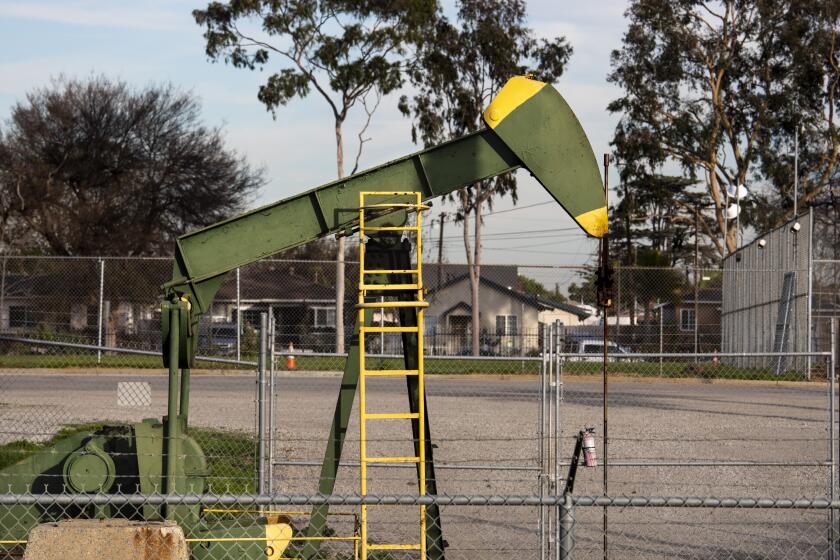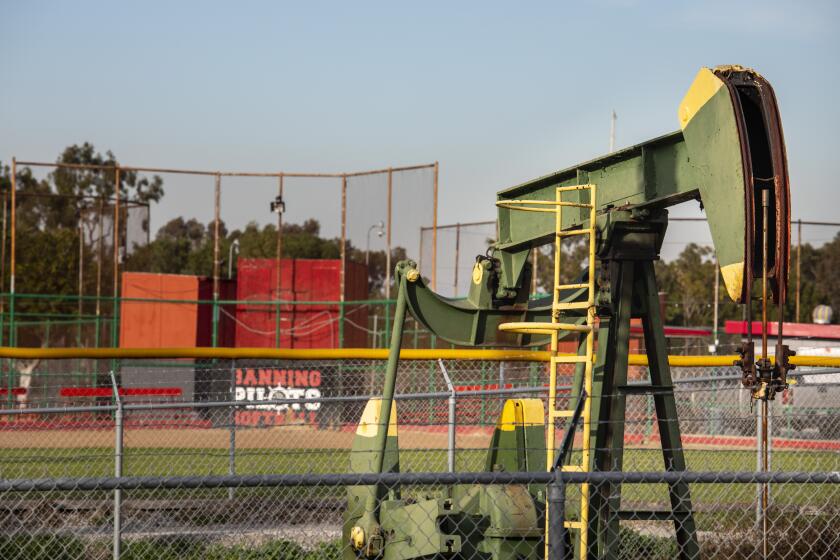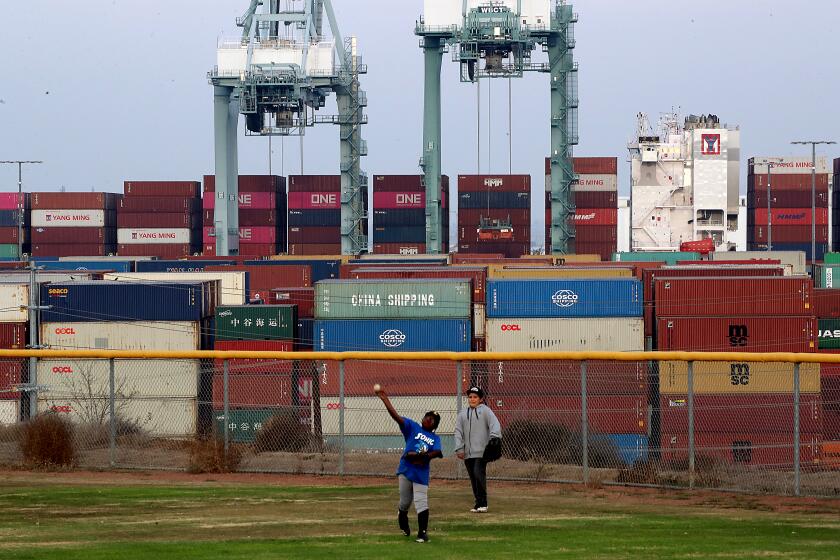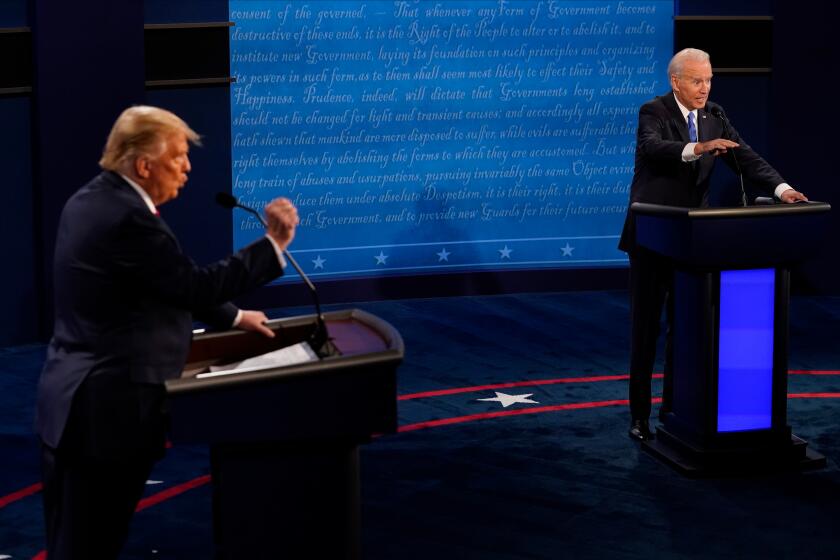Editorial: Climate change is an emergency too. Five ways Mayor Bass can respond
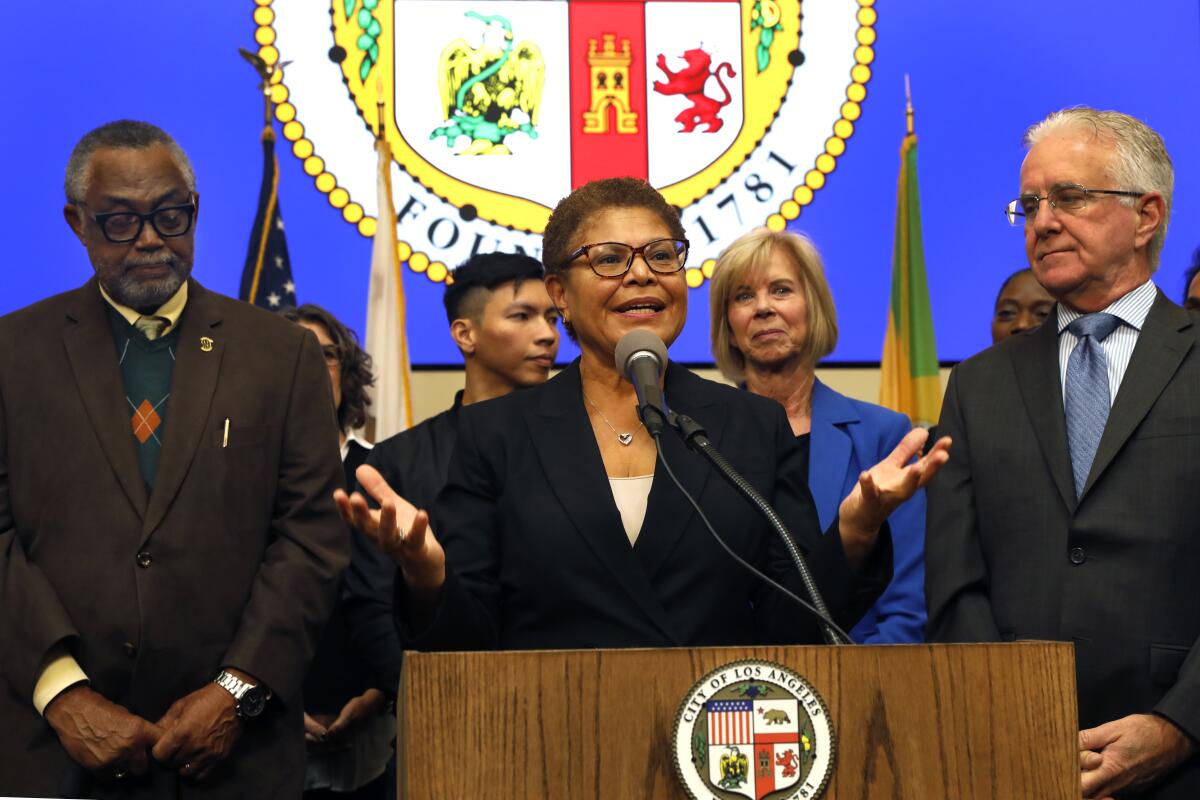
Mayor Karen Bass says the climate crisis is among the greatest challenges facing Los Angeles, and it’s easy to understand why. In just the last few years, the city has experienced its highest temperatures on record, some of the worst air quality in decades and one of the worst droughts in California history.
And though she has appropriately put the homelessness crisis first, Bass will need to tackle climate change with the same urgency. Here are five ways she can be an effective leader in the fight for climate and environmental justice.
Demand results on ambitious goals
Bass plans to continue with the suite of environmental goals established under Mayor Eric Garcetti, known as L.A.’s Green New Deal, while adding an emphasis on equity.
“If you look at the plan of the last administration, I couldn’t even imagine throwing that out and saying I want to start anew,” Bass told The Times editorial board earlier this month.
Los Angeles’ move to end oil and gas extraction is a climate and health milestone. But the 20-year timeline is too long, and officials need to work with urgency to ensure most wells are shut down sooner.
It’s good that Bass supports the plan’s goals of, among other things, Angelenos driving 39% fewer miles, getting 70% of their water from local sources and having 80% of vehicles on the road zero-emission by the mid-2030s. But she needs to set benchmarks and then demand the city departments actually meet the goals.
Get the city back on track
The city is behind on some important environmental targets, including planting 90,000 trees by 2021 to combat urban heat (the city reported planting 65,000 by May 2022). L.A. also lags other California cities in implementing its curbside composting program, which under Senate Bill 1383 requires Californians to toss food scraps into green bins to reduce emissions of planet-warming methane gas.
And there are big challenges ahead too, such as the city’s 2021 policy to require 100% of the city’s electricity to come from zero-carbon sources by 2035. These programs may be difficult to carry out but will bring benefits across neighborhoods, reducing emissions and making the city more resilient as extreme heat and other climate effects worsen.
Oil companies are seeking to overturn a law to ban new drilling near homes and schools. Gov. Newsom can use his administrative power to say no to new drilling.
Slash port pollution
The mayor’s office must get serious about cleaning up a port complex that is both a major economic engine and one of the region’s biggest sources of air pollution. Bass can do that by taking aggressive new actions to slash port emissions. Progress had already been tapering off before pollution increased dramatically during the COVID-19 pandemic, endangering people’s health in harbor-area communities and worsening smog as far as the Inland Empire.
Air pollution at the ports of L.A. and Long Beach surged dramatically during the pandemic. To fix this, city and port officials need to act fast.
Bass should support the region’s air quality officials as they work to hold the complex accountable by adopting long-delayed regulations that the leadership of the Port of L.A. had fought for years under Garcetti.
Bass also needs to work with the City of Long Beach and its new mayor, Rex Richardson, to reach the shared goal of having a zero-emission port complex by 2035. To start, they should raise the woefully insufficient $20-per-shipping-container fee the two ports charge cargo owners to help truckers switch to cleaner models. The fee should be at least as high as the $70-per-container rate the ports were charged under Mayor Antonio Villaraigosa.
Appoint climate champions
One of the mayor’s greatest powers is her ability to appoint people to the boards of key agencies that determine the pace and scale of climate action, not only at the port, but the Department of Water and Power, the Los Angeles County Metropolitan Transportation Authority, the Metropolitan Water District of Southern California and the South Coast Air Quality Management District.
During her campaign, Bass vowed to appoint leaders who will make public health and climate change their top priorities, and that is sorely needed. Previous representatives of these agencies have too often put the interests of powerful industries and labor unions above concerns about public health and environmental justice.
Appointing leaders with track records supporting clean air, climate action and environmental justice would show she is serious about turning a new page.
Phase out fossil fuels equitably
The City Council passed two important ordinances this year, one that bans new oil and gas drilling and requires existing wells to stop production within 20 years and another that requires new buildings to be fully electric.
Bass should move to phase out existing oil wells much sooner than that to protect residents’ health. Los Angeles should also move aggressively to retrofit existing homes with electric appliances by offering cash to help Angelenos upgrade when their gas-powered appliances break and adopting rules to prevent landlords from passing on the costs to tenants.
Doing that equitably will require extensive rebates and other targeted policies to make sure it does not burden poor communities. That’s crucial, because climate action can be deemed a success only if everyone, and not just the well off, see the benefits.
There are, of course, many more things Bass should be doing as the leader of the nation’s second-largest city to confront the climate crisis. But these five will give her a good head start.
More to Read
A cure for the common opinion
Get thought-provoking perspectives with our weekly newsletter.
You may occasionally receive promotional content from the Los Angeles Times.
